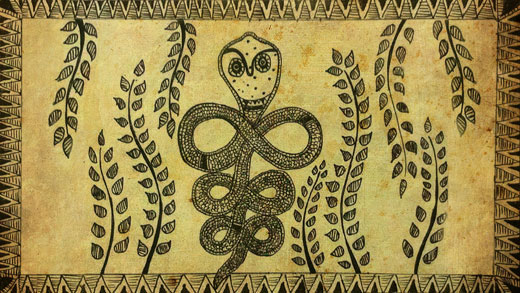Donna Quesada: Guru Meher, I’d like to start out by thanking you for your time.

I’m certainly delighted to spend this time with you and I know that our listeners will benefit from having you share your insights with us.
Guru MeherKhalsa: My pleasure. Thanks for having me.
DONNA: Well, thank you for being here, and we have a little tradition here at Awaken.com. We’d like to start with the question of what awakening is. And so let me just stop myself for those who might not know you…you are Guru Meher, and you teach at Yoga West. I know that you’re one of my teachers, so I’ll share that with our readers and viewers…
GURU MEHER: Teacher of Kundalini Yoga, that’s right. Yes.
DONNA: Yes…teacher of Kundalini Yoga. And so,we‘re in the business of awakening, but it’s such a big topic that I kind of like to dive right in and explore that notion of what awakening is.
GURU MEHER: I think of it just like when we’re born, and we are little kids and we can’t really do much…we can’t feed ourselves, we can’t…there’s a lot we don’t know…But later, we will, so the potential of knowing is in us, but we’re not always…have it available to us, right away. So, as we grow up, we keep knowing more and more, and our sense of ourselves in the world keeps expanding, bigger and bigger. So if you take that even further, I mean, that’s a life long process, and so, this thing that might sound mystical…called “higher consciousness” really is just this idea that sometimes we are conscious…and then later, we’re more conscious and then later, we’re more conscious. So, awakening is just a continual lifelong process of awakening as much as we can…so that our scope of what we can know, what we can process, what we can handle and enjoy, keeps expanding.
DONNA: Mmm…So, is it consciousness? Is it just being aware?
GURU MEHER: Well, consciousness has many levels, you know. I’m either asleep or I’m knocked out and I’m unconscious, so I think they all sorta mean the same thing. Like, how aware am I? And I think awareness really solves all problems eventually. Like, most of our suffering is just through ignorance. Well, I stole that from the Buddhists, but we just don’t know while we’re suffering. And once we are more aware, once we awaken…you know, as a yoga therapist my job is just…I was just working with a couple and they’re having this problem. I just help them awaken and be more aware of what was going on that was causing them the problem and as soon as they saw it they were like, “Oh, ok, problem solved. ”So awakening and awareness I put on the same…almost as the same word. Awakening to more awareness.
DONNA: Deeper seeing…
GURU MEHER: Yes, yes…
DONNA: And so, there are degrees, and it’s a lifelong process.
GURU MEHER: Yeah, and some people achieve more awakening and awareness in a lifetime than others, you know…I mean, it’s not a race. You can sort of see the difference in how far a person can get. And in yoga, we really say we scarcely know the upper limit of awakening. And so, we are all sort of pioneers in the spiritual Yoga world, trying to see if we can push the frontier of our own awakening.
DONNA: You know, it’s a curious thing because when people think of things like Yoga, or any spiritual tradition really, they think of awakening as equal to enlightenment. Like, it’s one big moment that happens once…that’s instant, and then it solves all problems immediately. But it’s really a process of degrees, of levels of awakening, and it doesn’t happen magically to make your problems disappear, just like that.
GURU MEHER: Right. Funny story…When I was a kid…Yoga was not a thing when I was a kid…there were no Yoga studios. You maybe found an esoteric book somewhere and read about the secrets of yoga and maybe there was a class…somebody came to town, you know. So, I had this sort of fantasy, mystical approach to it, and I really thought that yoga would, in its broadest sense, would be sort of a magical thing that would allow me to have no problems, no suffering, and be sort of…that there would be some big answer to everything. But really, I see it a little differently now. Like, life still is life. Life still has problems and challenges. But, if I am aware enough, if I am awakened enough, those big challenges become…they’re not overwhelming…they have a context…a larger context, so that I can handle life better. So, in the end, it is sort of a little magical, like hey, life isn’t that hard! But, it’s not that life changes…it’s that I change.
DONNA: And how does Yoga, and specifically, Kundalini Yoga, work toward advancing this process? So that in pragmatic terms, then it does make life easier? …That’s what we want.
GURU MEHER: Ok. I always take these big ideas down to the very immediate and practical. So in Yoga, like in many forms of exercise —which I’m not just saying that yoga is just a form of exercise, but it’s largely practiced that way…that you’re focused on making a goal, making a touchdown, lifting more weight…you’re focused outwardly. And so, the brilliant discovery of Yogis and other traditions around the world was to direct that attention inward. So, when you just close your eyes and get still, and get quiet, which is a part of most Yoga and most spiritual traditions—even Christian prayer, you know—then you start becoming aware of things within you, that you weren’t aware of before. They were going on but you weren’t aware of your thoughts, your feelings, your motivations, your beliefs. So, by just focusing on oneself…and in Yoga…you know, where Yoga can get competitive…Americans are sorta like, Who is the stretchiest? And, Who can be on the cover of the Yoga Journal?…and stuff. But even then, you know that people are going slow, and they’re feeling their body. So, on a very immediate and practical sense, paying attention more to ourselves —because we are the center of our awareness…we are the modality of our awareness…we are the portal of our awareness. So, by just starting to direct the attention inward and pay attention to the self, that’s where awareness starts increasing. And then of course, when the noise quiets down you’re just much more aware of things that you couldn’t hear before…and subtler…
DONNA: Like what…what do we discover when we go inward in that way?
GURU MEHER: Well, my expertise happens to be emotions. So my self-appointed mission in life has become to help people become masters of their emotions…emotionally skillful, and agile, and aware. And so, most people are running around feeling things all the time. Yogic theory tells us our mind will produce continual thoughts and continual feelings. So, most people running around, “We like the good feelings…We don’t like the uncomfortable feelings.”And so, I get amazing results in a class or with individuals, by simply…They come to me with a problem, and I say,“Ok, let’s close our eyes and what do you feel about that?”And most people, it takes them a while just to connect to, “Yeah, that problem is giving me some feelings, some emotion.”And by simply guiding them into an awareness of their emotion, they start…coming out of their…they start solving their own problems.
DONNA: Mhmm.
GURU MEHER: So, an example of just one thing that I help people become aware of is their feelings. And then, their feelings are part of their system that is trying to help them, and so, it does help them. So traditionally, meditation is thoughts, becoming aware of thoughts. So, I’ve just said, “let’s just bring in the emotions because every thought generates a feeling, anyway.”For most people, it just starts with just the body, “Oh my back has been kind of bothering me, but now that I’ve spent an hour slowly stretching it, kinda paying attention, not just trying to get it to perform but actually feeling it,”then we’re like, “Oh! My back is stiff or weak or something like that.”And on levels, that self-awareness, whatever is in there, you become aware of.
DONNA: So, could you give an example. So, for example, if you have a couple who are fighting and there’s anger. That anger then would be directed in a more constructive way because the awareness brings some space around it, so to speak. And I don’t want to put words in your mouth, but I’m trying to think of how this really plays out and the work that you do.
GURU MEHER: Well I’m about to write an article about… there’s three books out right now. One is called Rage Becomes Her. And there’s three books coming out right now all about women, women and anger, right now.
DONNA: Ah…
GURU MEHER: And how there’s this huge uprising of women running for office, in reaction to, or response to just, we’ve had enough of being treated this way for thousands of years. So, anger, this makes sense because anger is simply a systematic response to harm. So, every emotion has a purpose. They’re not just random. Every emotion has a purpose. Anger is a response to harm…to try to protect us, and take care and handle things. So, there it is right there. Awareness is growing, you know, women were property! Women didn’t have the vote in this country, we weren’t even a democracy. You’re getting me political here! No, I’m getting political here. But no, this is not a political issue. This is just a human rights thing, that women have been mistreated and abused by and large, by men, for a long time; not everyone, but…and so that’s a lot of cumulative harm.
And if women today have a voice, and have a vote, and still feel that they are not making as much money as men, but they’re still being harassed and their harassers are favored in the courts and that kind of thing —that’s a lot of harm. Going back thousands of years, that in one lifetime, and one in five women…I’m getting on a roll…One in five women are abused in this country —that’s a lot of harm. So if you think there’s not some anger that needs to come out!
And the whole trick with anger then —and this goes back to your question, “how does this relate to an individual relationship? ”Well, when there is anger, I know there’s been harm. And so, what I try to do, is help people use their anger constructively, and that takes awareness. That takes awakening to the purpose of anger. So, the way we misuse anger —and this is just one example of the many emotions —is, either we repress it… So, if somebody is being abused and they just don’t say anything for a long time…they’re still being hurt, the anger is gonna build, and at some point you know, it’s gonna erupt. But the other way, that even Yoga talks about emotions being bad, is when they just take over, when we just react. And somebody’s angry, so they just, you know, hurt, attack the person that they actually love, you know. So the skill with anger is to bring it into to the middle, to bring it to where —and in terms of the brain…the prefrontal cortex in my limbic system are cooperating at the same time, and I can feel that I’ve been harmed. I can feel the energy of the anger, which wants to protect me, but I can use my executive function mind to then act in a way that actually achieves my protection without harming somebody else.
DONNA: So it’s constructive not destructive.
GURU MEHER: Exactly. So, I’m sorry if I wanted to talk about that for about an hour! The answer only needed a minute, but…
DONNA: That’s an interesting thing, you know, in this culture you see so much, and this is where it differs from the Yogic approach. I remember watching a show once and they were actually going off on a venting mission, you know, and prescribing that as a proper way to deal with anger. And they went out with baseball bats to a junkyard and started hitting stuff. And this idea of venting is so western, and it’s so different from the eastern approach. And so, it’s a good thing I think, to explore. I remember reading the Buddhist monk, Thich Nanh Hanh, who said that that approach only practices the anger; it doesn’t actually help to abate it. So, your approach seems to be similarly eastern, in that we want space around it, we don’t just wanna react to it. That doesn’t help; it’s not like something that you get it out and then it’s done.
GURU MEHER: Right. So my book is called…my work is called Senses of the Soul.
DONNA: Which I have.
GURU MEHER: Oh, nice! Yeah! Even got some markers in there, so looks like you’ve been working it a little bit, okay. Good! That from this higher awareness that we have, meaning, just that sometimes we are not as aware, that emotions really —as opposed to how they’re understood in this culture at this time…as sort of this…even in the spiritual world, you know, I’m too spiritual to be angry kind of thing. Like, there’s a spiritual by-passing that goes on where people are actually replacing their emotions because they think they don’t befit them. But Yogi Bhajan my teacher, used the phrase, “Emotions are the senses of the soul.”And that’s what really created my whole work. I thought emotions were bad, I thought Yogis said, emotions were beneath them, so why did my teacher call emotions the senses of the soul?
And my 15 years of research with myself and with coaching clients is that there is… they come from both an instinctual place, but also a very intuitive place, that lets us know something is not right for us and gives us the energy to make it right. But because of that, there’s a lot of wisdom in the instinctual part, so, when we repress emotions, we lose the instinctual value that hey, something’s not right for me.
But, on the other hand, when we let the animal nature of us just go attack back, then that’s not really the result that we wanted. So, when we can consciously use them, feel them, and be in what we call neutral mind, and not be in a reactive state when we work with them…And Kundalini Yoga is so valuable for this, because in a short amount of time, in Kundalini Yoga, we can get somebody in what we call, neutral mind—a clear state —in you know, three, six, eleven minutes of breathing.
I just came back from Australia. I did 14 workshops in a row, all people who have never done this stuff…mostly people who have never done it, and if people come in afraid of their minds…I had a woman come in and she said, “I’ve got this problem but I never feel emotions, and I don’t want to feel emotions, so don’t make me feel any emotions.“In 11 minutes I can just give her a breathing technique, I think we only spent six minutes, and she got a sense of safety and clarity. And then I just helped guide her into feeling what she was feeling, and literally in a half an hour she came out with the solutions to her problems. And she said immediately…Usually people come out of their meditative state and sort of want to discuss what they learned. She immediately opened her eyes and said, “How did you do that?”and I said, “I just know how emotions work and I know to help you feel safe to feel them. And then I just guided you to work with your emotions, and the answers came out of you.”So this is Yogi Bhajan’s prediction, that the future of therapy is self therapy. That people have the answers within them. We always say this within yoga. This is a really tactile way, that through the emotions, which are the senses of the soul, people actually access very quickly, more than they think they know, about how to solve one of their own problems, right.
DONNA: You know, this is an interesting thing, a personal interest of mine. You were saying that your student in Australia was in the habit of suppressing and not wanting to feel her emotions, which are the senses of the soul, and that is the work that you do. Is there ever an appropriate use of distraction? There’s so much emphasis on feeling what you feel. But just to sort of play devil’s advocate here, who wants to feel yucky stuff? Is it ever a healthy just to focus elsewhere, on something pleasant, to switch gears in that way?
GURU MEHER: Okay. Yoga’s very good at…You can be feeling bad and go into a Yoga class and come out feeling great. And we need that. We know that the brain tends to latch onto negative experiences as a protective mechanism to avoid them. So it’s much harder to program the mind to be happy, than it is to program it to be fearful.
DONNA: Interesting, so the default, or “factory setting” is toward the negative, fearful emotions…
GURU MEHER: That’s right, so…but, we don’t like those, who wants to live that way? It’s great that we’ve developed a way that we can do Yoga class and feel better. And that’s important because it takes twice as much work to feel better, than it does to feel worse. So, that is very wonderful and very important. And that’s what most Yoga people are doing, I just want to feel better. And then there becomes this belief that we should always be feeling good all the time.
DONNA: Mhmm.
Read and Watch Part II Here: Awaken Interviews Guru Meher Khalsa Pt 2 – Face The Shadow
Read and watch Part III Here: Awaken Interviews Guru Meher Khalsa Pt 3 – Embrace The Feminine

















































